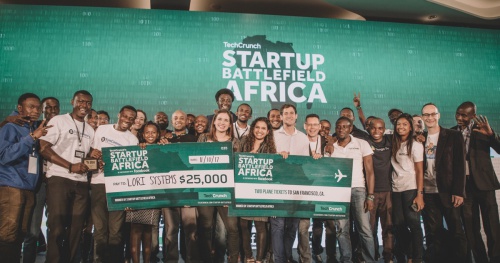A successful Startup in Africa
Last week, I had a conversation with Jeremy Burton, a senior manager of a large company in New York. He said: “For many years we outsourced software development to India and China, but now we found a better place: Africa.”
I was surprised: “Why Africa? I could expect either Eastern Europe or South East Asia as the next destination but never think of Africa.”
He explained: “Today India is getting more expensive, and Chinese developers are still having a problem with the English language. Africa has a lot of smart people, many speak English well, but they lack the training and opportunity because there were not many good jobs there. Three years ago (2014), there was a startup named Andela who came up with an idea about providing software developers to the U.S. and European countries. This startup of six college students started an online training on specific skills that were needed by U.S. and European companies such as Java, Ruby, PHP, JavaScript, etc. To prepare these developers to perform well, they put them in a challenging environment that “simulated” a real software development scenario over a three months period where they were working on a project managed by Andela managers in different cities and time zones, so they could be familiar with the outsourcing works. Only developers that passed these rigorous training could be hired to work for their customers. Because the training was based on the needs of their customers in the U.S. and Europe, this startup could help solve the current skills shortage. After I heard about them, I came to visit to review their training, and I was impressed. Now I outsource software works to Andela in Lagos, Africa.”
I asked: “What they did was similar to what Indian’s companies were doing so what distinguishes them from outsourcing companies in Eastern Europe or South East Asia?
Jeremy explained: “Many Indian companies did well in the beginning, but over time, their quality is degrading as they grow big and their price is getting higher every year. This African startup understands the quality and the price issues. They select the top talents from many universities across Africa and train them well to make sure that they can be integrated into a team to work for their customers. Not only this startup train people in person but thousands of young people across Africa have used the free online learning to learn computer programming . After passing these online courses, they apply to get a job at Adela and only a few who demonstrate the proper skills get accepted. Andela managers told me that they had trained approximately over thirty thousands software developers, but their goal is to develop 100,000 software developers for Africa in by 2020. This is a great startup story that gives young people who want to learn programming can get good jobs. Today Andela have over hundred customers, mostly from the U.S. such as Viacom, Mastercard, and SeatGeek as well as several large companies in other countries.”
I asked: “Is Andela still a startup? How well are they doing now?”
Jeremy laughed: “This start-up has attracted a group of top investors that find their business appealing. So far Google Ventures and Spark Capital have invested over $80 million dollars to their company. But more than that, Andela also received investment and support from The Chan Zuckerberg Initiative, which Mr. Zuckerberg and his wife, Priscilla Chan have created. Mr.Zuckerberg visited Andela’s office and told them, “You are all part of something that is really important today.”
With the current skill shortage and the pressure to reduce costs, many U.S. companies are switching their outsourcing works from India and China to Africa. Now this continent is the new destination for software works. I expect this startup could grow bigger and become a model for many startups to follow. Their challenge now is how to scale up to meet the demand of this global needs. So far, this startup has been doing well, but can it continue to grow and be able to keep its high-quality services?
Sources
- Blogs of Prof. John Vu, Carnegie Mellon University
